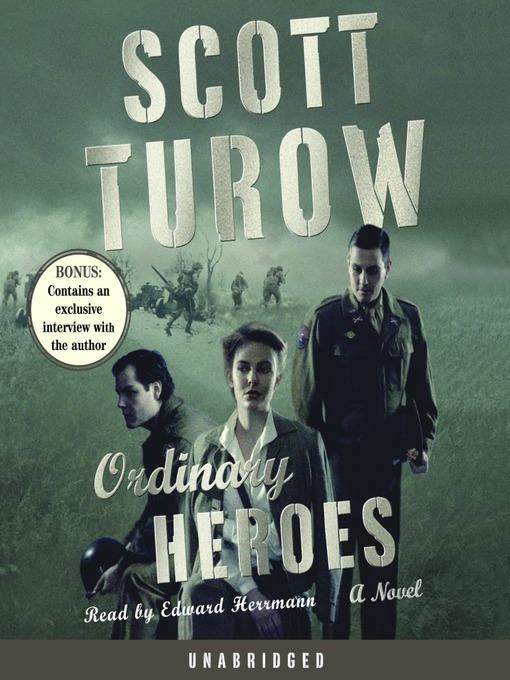
Ordinary Heroes
A Novel
کتاب های مرتبط
- اطلاعات
- نقد و بررسی
- دیدگاه کاربران
نقد و بررسی

Actor Edward Herrmann is the perfect voice for Scott Turow's new novel. Herrmann never gets in the way of the story; rather, he serves as a vehicle for the work. His performance is seamless, flawless. Herrmann has one accent for the young man learning about his father's past in WWII and a different voice when he portrays that father. Even his vocalization of the young French woman who becomes embroiled in the action is perfect. Perhaps the finest testament to Turow's writing skill is that he has to explain that the book is not based on his own father. Otherwise, after finishing the work, that is the first question the listener will ask. M.S. Winner of AudioFile Earphones Award (c) AudioFile 2006, Portland, Maine

Starred review from September 19, 2005
When retired newspaperman Stewart Dubinsky (last seen in 1987's Presumed Innocent
) discovers letters his deceased father wrote during his tour of duty in WWII, a host of family secrets come to light. In Turow's ambitious, fascinating page-turner, a "ferocious curiosity" compels the divorced Dubinsky to study his "remote, circumspect" father's papers, which include love letters written to a fiancée the family had never heard of, and a lengthy manuscript, which his father wrote in prison and which includes the shocking disclosure of his father's court-martial for assisting in the escape of OSS officer Robert Martin, a suspected spy. The manuscript, hidden from everyone but the attorney defending him, tells of Capt. David Dubin's investigation into Martin's activities and of both men's entanglements with fierce, secretive comrade Gita Lodz. From optimistic soldier to disenchanted veteran, Dubin—who, via the manuscript, becomes the book's de facto narrator—describes the years of violence he endured and of a love triangle that exacted a heavy emotional toll. Dubinsky's investigations prove revelatory at first, and life-altering at last. Turow makes the leap from courtroom to battlefield effortlessly.

























دیدگاه کاربران